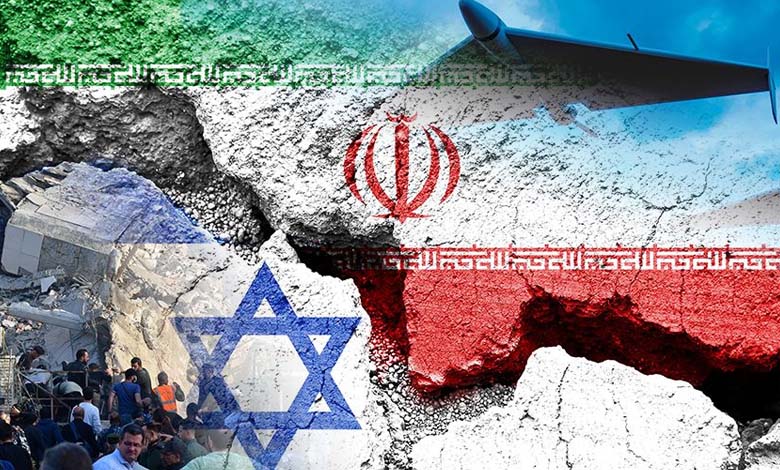As if the world forgot us: Gaza fears its tragedy is being buried under Iran-Israel conflict

While global attention shifts to the growing conflict between Iran and Israel, Gaza is silently waging a war against hunger and death—without cameras.
Palestinians in the Gaza Strip have voiced fears that their ongoing humanitarian crisis is being forgotten amidst the escalating crossfire between Israel and Iran since last Friday.
-
Anticipation and Preparations in Israel for a Double Attack from Iran and Yemen
-
Israel’s Strikes on Iranian Nuclear Facilities: Conflicting Assessments and Unclear Outcomes
Bissan Qouider, a young Palestinian girl in Gaza, just lost her father—killed while trying to get food for her and her ten hungry siblings.
Her father, Shadi Qouider, knew going to Ma’an, east of Khan Younis, was dangerous—it had been under Israeli evacuation orders and had come under fire.
Still, his children were starving. He believed he might be able to find food there, according to photojournalist Khaled Shaath, who captured Bissan’s grief and shared it with CNN.
-
Israel and Iran: Everything You Need to Know About The Fire Saturday
-
Israel Vows Retaliation as Iran Issues Threats — Red Lines Crossed and Strikes to Continue
Shaath said Qouider was killed in an airstrike, and his body was pulled from the rubble on Sunday. He is one of hundreds killed while seeking food in Gaza in recent weeks, according to Gaza’s health authorities.
When CNN inquired about Ma’an, the Israeli military provided a Gaza map marking “dangerous combat zones” in red—covering Ma’an and over half the Strip.
For little Bissan, all that remained of her father were his shoes.
-
Israel Launches Massive Strike on Nuclear and Missile Facilities in Iran
-
Is an Attack Imminent? US Newspaper Reveals Israeli and Iranian Preparations
Hunger crisis in Gaza
Gaza is facing a hunger crisis. A UN-backed report from late April warned that one in five Gazans is on the brink of famine.
Since then, the situation has only worsened, according to the UN.
In late May, Israel partially lifted an 11-week total blockade, but humanitarian groups say the current aid allowed in is only a fraction of what’s needed.
Tom Fletcher, the UN humanitarian coordinator, said last week: “Without immediate, large-scale access to basic necessities, we risk sliding into famine, chaos, and further loss of life.”
-
In Iran’s Eid Sermon: The U.S. and Israel Present with Warnings
-
“Surprise” in Israeli Attack on Iran: Advance Warning of Date and Targets?
The International Committee of the Red Cross confirmed Monday that people struggle to obtain essentials due to Israeli restrictions on what can enter Gaza.
The humanitarian catastrophe has triggered global outrage, prompting even close allies of Israel to speak out.
France, the UK, and Canada issued a rare joint statement last month, criticizing Israel and threatening “concrete actions” if conditions in Gaza don’t improve.
-
Details of Iran’s “Recruitment” of an Israeli and His Girlfriend to Carry Out an “Assassination” Operation
-
In Case of an Israeli Attack: Source Discusses Iran’s Plan and Target Bank
The UK suspended trade negotiations with Israel and imposed sanctions on West Bank settlers. The EU announced a review of a major cooperation agreement with Tel Aviv.
Meanwhile, the Gaza Humanitarian Foundation, backed by Israel and the U.S., has been distributing aid in the enclave since May 27, but it has drawn criticism from multiple international relief agencies as inadequate.
-
Iranian Missiles on Israel: Launch and Interception Costs
-
Can Hezbollah stand up to Israel? Iranian President expresses doubts
Iran-Israel tensions and body bags in Gaza
As tensions between Israel and Iran escalate, Gazans fear that even minimal pressure on Israel regarding their plight may disappear entirely.
“The war between Israel and Iran made people forget us completely,” said Mohammad (name withheld), a Gazan, to CNN. “No one is looking at us. There is no food, no water, nothing. Every day people go to get aid and come back in body bags.”
-
Israel Caught Between Rafah and Iran.. Will it Break the Pressure Barrier?
-
Sanctions on Iran and Aid to Israel… “American Representatives Swim Against the Biden Current”
Umm Mustafa, another Gazan, told CNN that the growing Iran-Israel conflict “means our suffering has vanished from international news agendas.”
Abu Jomaa, from Gaza City, noted that “although some voices still call for humanitarian access, the Iran-Israel war means no one is demanding food or water for Gaza anymore.”
-
Israeli Army and Mossad Agree on Plans to Strike Iran
-
Israeli Movements to Confront Iranian Threat: Reservist Call-up and Communication Jamming
One in every 40 Gazans killed
Since October 7, 2023, the war has killed more than 55,300 and injured over 128,700, according to Gaza’s health ministry.
That equates to about 2.5% of Gaza’s total population—one death for every 40 residents.
A study published in The Lancet earlier this year suggested that the real death toll could be even higher.
-
Iran warns Israel and the United States of “escalation beyond control”
-
Bushehr Reactor… Nuclear Fear Factor Deters Israeli Strikes
Since the Gaza Humanitarian Foundation began aid distributions in late May, at least 300 people have been killed in areas near its distribution points, which are located in active combat zones, according to authorities.
The UN Office for the Coordination of Humanitarian Affairs (OCHA) said last week that Israel has allowed only a few UN and international NGOs to resume aid deliveries, and only very limited quantities of food, nutrition supplies, medical items, and water purification products are allowed in.
-
Iran on High Alert Amid ‘Major Breach’: Mossad Operatives Captured by Security Forces
-
Netanyahu Urges Iranians to Rebel Against Regime Following Unprecedented Strikes
Shelter materials, hygiene products, and medical equipment remain banned.
“There’s nothing to eat or drink,” said Abu Mohammed, a resident. “A sack of flour now costs 300 to 500 times more than before… We feel like the world has forgotten us.”











